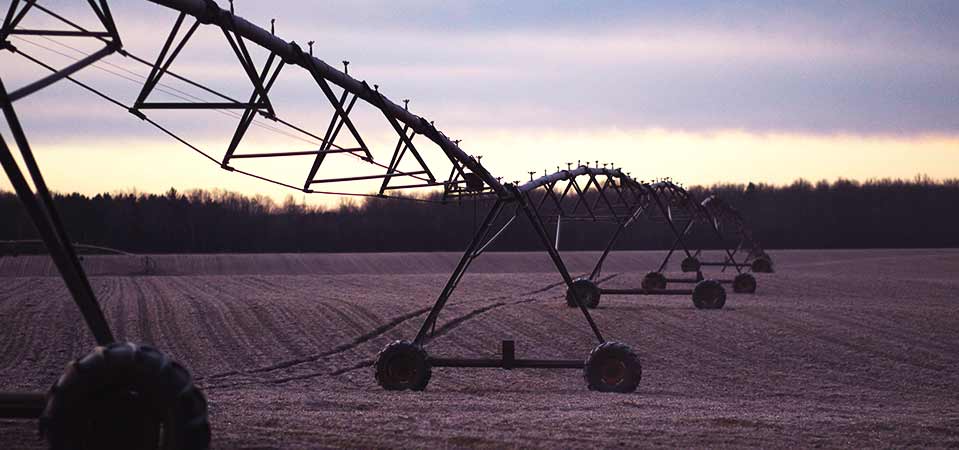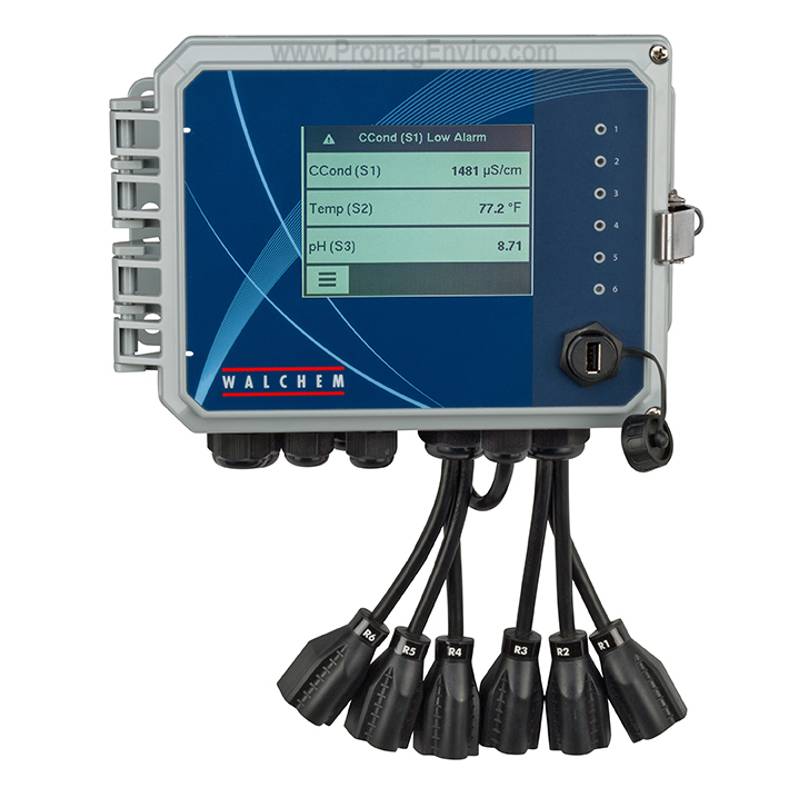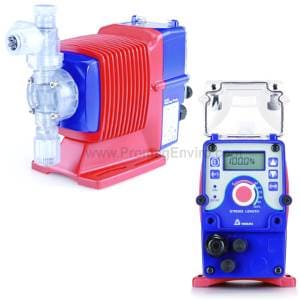
Irrigation water quality control systems
Crop irrigation is essential to modern agriculture methods. With water use becoming more regulated, irrigation methods have become more efficient by using sprinkler or drip and trickle style lines. While saving water, these systems have a tendency to clog with scale and biological growth.
The solution is to add a controlled amount of chemicals to balance the pH of the water. As well, irrigation water sources can be disinfected to prevent the spread of disease and deadly bacteria to crops.
Controlling Irrigation pH
Many water sources that farmers rely on are hard and high in alkalinity. This water produces scale (calcium carbonate) which eventually clogs up sprinklers and drip emitters. The soil eventually becomes more alkaline which can cause health problems and reduce yields of many crops.
By controlling the pH using an acid, the calcium carbonate is converted to carbon dioxide which reduces the scaling potential. This is a fairly simple chemical addition if the flow through the lines is consistent; however with changing flows, it becomes much more problematic.
When changing flows are present it is necessary to have a chemical pump that reacts to the increased flow (EWY, EHE, LK or IX) as well as a controller (W600/W100) that has a pulse proportional output. These algorithms allow the controller to compensate for changes in flow and pH of the water.
Fertilizer and Nutrient Addition
Pumps can be used to add a proportionate and uniform amount of fertilizer through the irrigation system. Fertilizer and micro-nutrient additions can be precisely controlled so as not to burn or damage the plants.
Irrigation Water Disinfection
Many cases of crop contamination have occurred due to contaminated irrigation water mainly coming from surface water usage. More farms are beginning to initiate disinfection of irrigation water by using chlorine or chlorine dioxide at the well head or the pump station.
This type of treatment reduces contaminated product by ensuring that not only is the water that accumulates on the outside of the plant is treated, but also the water that may enter the plant through damage is disinfected.
Related Products for Agriculture Applications

The Walchem W600 Programmable Controller
W600
Find the WDS600 in the Promag Enviro shop.
- Completely Programmable from Touch Screen
- On-Screen Graphing and Variable Data Logging
- Variable Sensor Input Configurations—Walchem or 4-20 mA sensors
- Remote Communications—via Ethernet
- (6) Relays- Powered, Pulse Proportional or Dry Contacts
- Optional (2) Analog Output Card
W100
Find the WDSW100 in the Promag Enviro shop.
- Standalone controllers that can be wall or panel mounted to meet the particular needs of a system.
- 4-20 mA output, pulse proportional control to drive chemical pumps or standard powered relays with many algorithms for precise control.
- Utilize specific sensors for chlorine, chlorine dioxide, conductivity and pH.

A Walchem chemical metering pump for injecting disinfectant
Chemical Metering Pumps
Promag Enviro carries a wide range of chemical metering pumps for all applications. The pumps are available at many flow rates and with different control options.
Walchem chemical pumps have been engineered for accuracy and reliability. The pumps have a high degree of adjustability (360 spm, 1800:1 turndown ratio) for accurate chemical metering. They also have a two-year warranty and require minimal maintenance. The EK pump is also waterproof for wash-down applications.
Promag Enviro is a Walchem Distributor and can help you build and service agriculture systems.
|